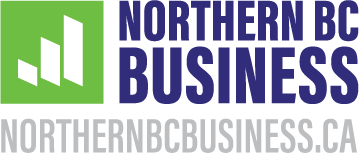Premier David Eby today announced the doubling of a clean energy fund designed to help remote First Nations communities get off diesel power, or at least reduce its use.
The Community Energy Diesel Reduction program was launched in 2022 with a $29 million investment, which helps First Nations either undertake fuel switching projects or building energy retrofits. The first intake awarded $7 million to 12 First Nations to replace diesel generators with cleaner sources of electricity.
On Monday, Eby announced the program will be extended by another three years with $30 million in additional funding. He made the announcement this morning on the first day of the First Nations Major Projects Coalition conference in Vancouver.
“First Nations throughout B.C. are taking a leadership role in reducing carbon pollution, and our government is there to partner with them,” Eby said in a press release. “This new investment will help even more remote communities build and expand clean-energy projects that move our province away from diesel and toward a cleaner, brighter future.”
The province estimates the new funding could fund up to 96 projects, including fuel switching to replace diesel generators with hydro-electric power, solar, biomass or wind power.
“By doubling our investment in the Community Energy Diesel Reduction program, we are supporting some of the hardest-to-reach off-grid Indigenous communities to greatly reduce their dependence on fossil fuels and save money,” said Josie Osborne, Minister of Energy, Mines and Low Carbon Innovation.
“Clean energy and energy efficiency are foundations for a sustainable economy that supports future generations, and First Nations are leading the way in exploring and adopting alternatives to community-scale diesel generators.”
In addition to producing pollutants like nitric oxide and fine particulates, burning diesel also generates a lot of CO2. In B.C., about 19 million litres of diesel is burned to generate power in remote communities, producing 51,784 tonnes of CO2 — equivalent to the emissions produced by 11,000 vehicles per year.
The CleanBC goal is to reduce the use of diesel in remote communities by 80 per cent by 2030.
“Transitioning from diesel power to sustainable energy sources is challenging,” said Sharleen Gale, chief of the Fort Nelson First Nation and chairperson of the First Nations Major Projects Coalition.
“We’re pleased to see the province increase funding for First Nations and remote communities to develop community energy plans and invest in sustainable energy projects that meet local needs, reduce emissions and create economic opportunities.”
nbennett@biv.com
nbennett_biv


